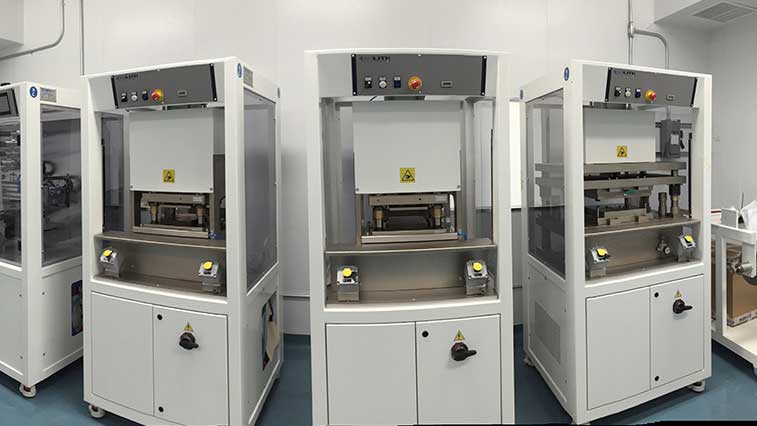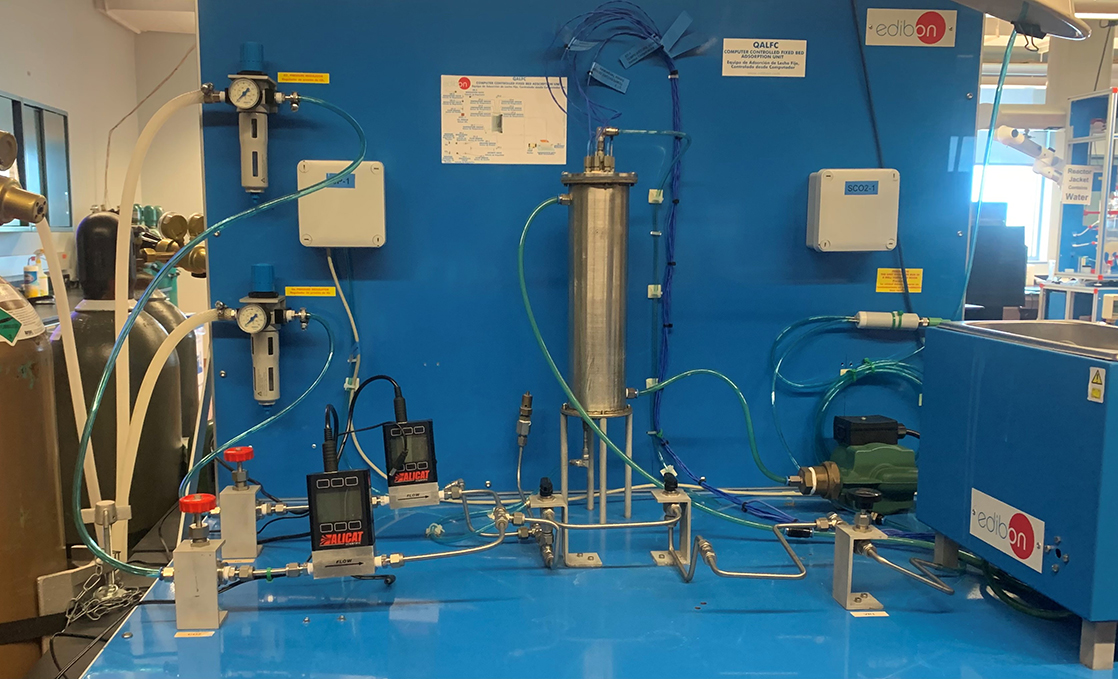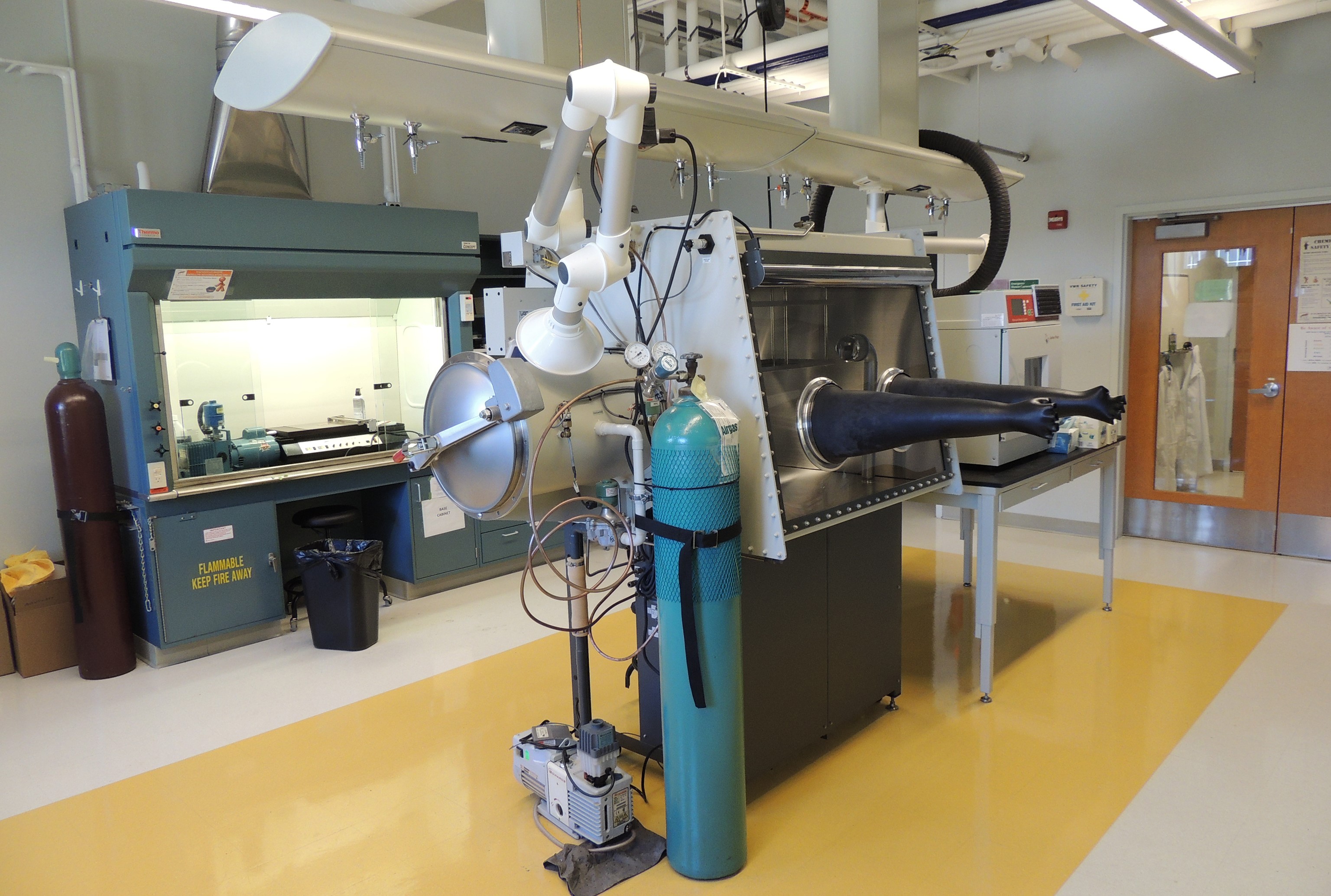Department of Chemical Engineering

Department of
Chemical Engineering
- RIT/
- College of Engineering/
- Academics/
- Departments/
- Chemical Engineering
Contact
Department of Chemical Engineering
ChemicalEngineering@rit.edu
Overview
Chemical engineers develop processes that transform raw materials into useful chemicals that enhance our quality of life. In addition to chemicals found in products used by consumers every day, chemical engineers create novel materials such as nanoscale composites, pharmaceuticals, plastics, fibers, metals, and ceramics. Chemical engineers are trained to design and control chemically reactive processes to achieve desired chemical purity. However, they also use their intricate knowledge of chemistry, engineering principles, and applied mathematics to work in a variety of other applications. These include applied energy systems, biomedical materials and therapies, and strategies to minimize the environmental impact of technological advancements.
A common question that many ask is, “How is chemical engineering different from chemistry?” Typically, chemists create new molecules via chemical reactions, examine the underlying mechanisms involved, and make precise chemical measurements on a bench scale in small volumes. Chemical engineers utilize the initial work of the chemists, but often need to modify the reactions themselves, as they can be too slow to be useful. Additionally, chemical engineers examine how the size of a system affects the chemistry, as both heat transfer and mixing processes get more difficult with increased system size—and the scale needs to be larger to meet demand for chemicals. The interaction between size and chemistry is non-trivial and requires bench top and larger scale experimentation in which key parameters are measured. Such parameters are, in turn, inserted into mathematical models to predict larger scales. This is an iterative process and requires the intensive training that RIT chemical engineering provides.
Accreditation
The BS degree in chemical engineering is accredited by the Engineering Accreditation Commission of ABET, www.abet.org. For Enrollment and Graduations Data, Program Educational Objectives, and Student Outcomes, please visit the college’s Accreditation page.
280
Undergraduate and Graduate Students
7
Faculty Research Labs
Degree Programs
Undergraduate Degrees
With RIT’s chemical engineering BS, you’ll design processes to transform raw materials into products for industries such as food, pharma, and energy systems.
Learn more about the Chemical Engineering BS programIn addition to the doctorate programs offered by the Kate Gleason College of Engineering, our faculty members are actively involved in advising students in doctoral programs across RIT, including Mathematical Modeling Ph.D. and Sustainability Ph.D..
Graduate Degrees
The biomedical and chemical engineering Ph.D. program provides you with the knowledge, training, and expertise to tackle important problems in diverse industries.
Learn more about the Biomedical and Chemical Engineering Ph.D. programThe chemical engineering MS prepares you to develop new, high-tech materials for use across a range of industries ranging from semiconductors to pharmaceuticals.
Learn more about the Chemical Engineering MS programIn RIT's microsystems engineering Ph.D., you’ll conduct research in nano-engineering, design methods, and technologies for micro- and nano-scaled systems.
Learn more about the Microsystems Engineering Ph.D. programMinors and Immersions
The minor in chemical engineering systems analysis provides students with a sophisticated understanding of the application of scientific knowledge to the solution of a vast array of practical problems in which chemistry plays a critical role. Students are taught the systems methodologies that chemical engineers employ to analyze and solve real world problems involving distinct chemical components, chemical reaction, multiple phases, and mass transfer.
Learn more about the Chemical Engineering Systems Analysis Minor programResearch
Advanced Materials, Thermodynamics of Chirality
We design molecular building blocks to form complex self-assembled structures using thermodynamic principles and computational tools.
Application of Mathematical Modeling to Dynamic Systems
We specialize in asymptotic analysis techniques to study wave propagation and solve nonlinear equations of mathematical physics.
Biomacromolecules
We design nature-inspired, high-quality colloidal matter to study self-assembly in real time.
Optical Materials, Sensing, Catalysis
We design and prepare photoluminescent/plasmonic materials for portable sensing and single-molecule fluorescence catalysis.
Computational Surface Sciences
We apply state-of-the-art molecular simulation methods to study interfacial behavior and catalytic reaction mechanisms in heterogeneous systems.
Lithium Ion Batteries
We are improving lithium ion battery performance to increase energy density while maintaining power, cycle life, and safety.
NanoEng
We combine experimental and modeling techniques to address challenges of the water-energy nexus by developing sustainable processes.
Nanomaterials, Carbon Nanotube Conductors, Lithium Ion Batteries
We are involved with the synthesis and application of carbon nanotubes for power transmission wires and lithium ion batteries.
Latest News
-
February 20, 2025
![A graphic with a gray background, a photo of Jairo Diaz Amaya, and the text, "Jairo Diaz Amaya, assistant professor, Department of Chemical Engineering"]()
Engineering faculty receives DARPA Young Faculty Award honors
Jairo Diaz Amaya, assistant professor of chemical engineering was honored with a Defense Advanced Research Projects Agency (DARPA) Young Faculty Award for his work conducting fundamental research in the fabrication and self-assembly of colloids—key elements of soft matter.
-
February 10, 2025
![a man holds an expandable ball]()
RIT Research Minute: Soft Matter Signaling
Professor Jairo Diaz and his research team are experimenting with soft matter to create new materials for the future. Learn how they’re changing the internal structure of tiny, microscopic droplets to create something new.
-
February 5, 2025
![A scanning electron micrograph of a chiral magic-sized cluster film with micrometer-scale bands being broken into their nanometer-scale filament units.]()
Adding chirality to semiconductors could improve light-based technology
Photonics Spectra interviews Steven Weinstein, professor in the Department of Chemical Engineering, about his recent collaboration on semiconductor research.
Featured Work and Profiles
-
RIT Research Minute: Soft Matter Signaling
Jairo Diaz Amaya Professor Jairo Diaz and his research team are experimenting with soft matter to create new materials for the future. Learn how they’re changing the internal structure of tiny microscopic droplets to...
Read More about RIT Research Minute: Soft Matter Signaling -
NIH Grant Supports RIT’s Fight Against Drug-Resistant Bacteria in Sepsis
RIT researcher Ke Du has received an NIH grant to develop a microfluidic device that rapidly detects drug-resistant bacteria causing sepsis, improving diagnosis and treatment.
Read More about NIH Grant Supports RIT’s Fight Against Drug-Resistant Bacteria in Sepsis -
Uche Awarded NSF Early Career Grant for Sustainable Methane Conversion
RIT chemical engineering professor Obioma Uche has received an NSF Early Career Award to explore new catalysts for converting methane to ethylene, aiming to reduce greenhouse gas emissions and improve...
Read More about Uche Awarded NSF Early Career Grant for Sustainable Methane Conversion -
RIT Researchers Ranked Among Stanford’s Top 2% Scientists
Dozens of RIT researchers were named among the world’s top 2% of scientists in a Stanford University study, recognizing their significant contributions to their fields.
Read More about RIT Researchers Ranked Among Stanford’s Top 2% Scientists -
RIT Chemist Awarded Grant to Unravel the Secrets of Molecular 'Handedness'"
Poornima Padmanabhan RIT’s Poornima Padmanabhan is set to investigate how the twist in molecules—like how your left hand differs from your right—plays a crucial role in biology and material innovation.
Read More about RIT Chemist Awarded Grant to Unravel the Secrets of Molecular 'Handedness'" -
Researchers Pioneer Solutions for Degenerative Disc Disease
RIT biomedical engineering professors Karin Wuertz-Kozak and Thomas Gaborski are developing a groundbreaking non-invasive treatment for degenerative disc disease by using advanced gene-editing...
Read More about Researchers Pioneer Solutions for Degenerative Disc Disease
Student Organizations
The student chapter of the American Institute of Chemical Engineers (AIChE) promotes the chemical engineering program at RIT to current students, prospective students, professionals, and the community. To accomplish this mission, we have made it our goal to give students insight into the expansive field of chemical engineering by hosting guest speakers and organizing tours of both plants and research facilities in the area. Alexander Roth serves as AIChE Chapter Advisor.
Student Resources
The chemical engineering department offers a variety of resources for our students that vary from academic support to handbooks and more. Visit our Student Resources page for more information.




























